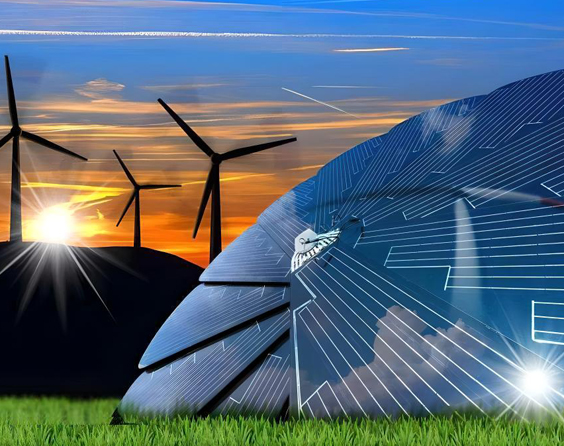
Energy storage and fuel cells
Hydrogen energy storage is a new type of energy storage that has outstanding advantages in energy, time, and space dimensions, and can play an important role in the construction of new power systems. Hydrogen energy storage technology has been developed by utilizing the mutual variability between electricity and hydrogen energy. Hydrogen energy storage can store both electricity and hydrogen and its derivatives (such as ammonia and methanol). Narrowly defined hydrogen energy storage is based on the power to power (P2P) conversion process, mainly including electrolytic cells, hydrogen storage tanks, and fuel cells. Utilize the surplus new energy energy during the low valley period to electrolyze water for hydrogen production, store it or supply it to downstream industries; During peak electricity usage, the stored hydrogen energy can be used to generate electricity using fuel cells and integrated into the public grid.
-
产品介绍
Hydrogen energy storage is a new type of energy storage that has outstanding advantages in energy, time, and space dimensions, and can play an important role in the construction of new power systems. Hydrogen energy storage technology has been developed by utilizing the mutual variability between electricity and hydrogen energy. Hydrogen energy storage can store both electricity and hydrogen and its derivatives (such as ammonia and methanol). Narrowly defined hydrogen energy storage is based on the power to power (P2P) conversion process, mainly including electrolytic cells, hydrogen storage tanks, and fuel cells.
Utilize the surplus new energy energy during the low valley period to electrolyze water for hydrogen production, store it or supply it to downstream industries; During peak electricity usage, the stored hydrogen energy can be used to generate electricity using fuel cells and integrated into the public grid.
The broad concept of hydrogen storage emphasizes the unidirectional conversion of electricity to hydrogen, storing hydrogen gas (Power to Gas, P2G) in gaseous, liquid, or solid forms, or converting it into chemical derivatives such as methanol and ammonia (Power to X, P2X) for safer storage.
In the fields of new and clean energy, hydropower, wind energy, solar energy, biomass energy, nuclear energy, and fuel cells have received widespread attention and research. Among them, fuel cells have received increasing attention due to their characteristics of fast start-up, high efficiency, low noise, and low pollution.
A fuel cell is a device that converts chemical energy stored in fuel into electrical energy. As fuel undergoes energy and material conversion and transfer through electrochemical reactions during operation, it has high efficiency, which is about two to three times higher than traditional combustion efficiency. When hydrogen is used as fuel simultaneously, fuel cells can fully achieve pollution-free electricity supply, with the only other product being water. In addition, with its advantages of low noise and fast start-up, fuel cells are an ideal energy conversion and supply device.
Fuel cells can be divided into alkaline fuel cells, phosphoric acid fuel cells, molten carbonate fuel cells, solid oxide fuel cells, proton exchange membrane fuel cells, etc. based on their structure and working principles. Proton exchange membrane fuel cells have been widely used due to their advantages such as high power density, zero emissions, and low noise, and have become one of the core technologies for the development of the hydrogen energy industry. At present, in terms of commercialization of fuel cells, the cost of the entire fuel cell system is rapidly decreasing. -
详细参数




